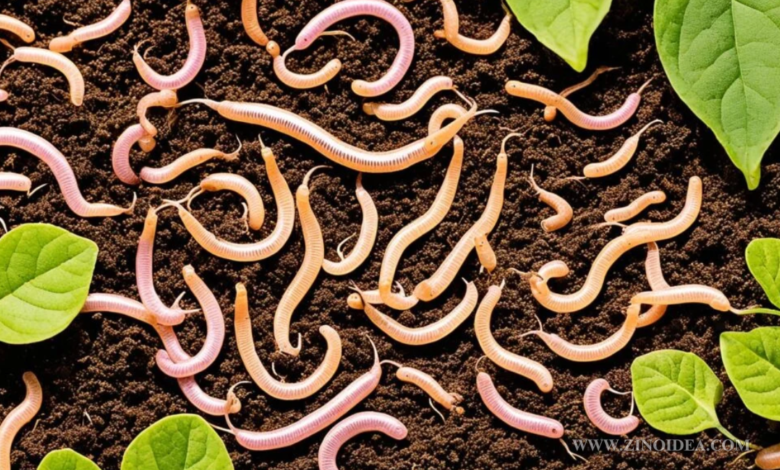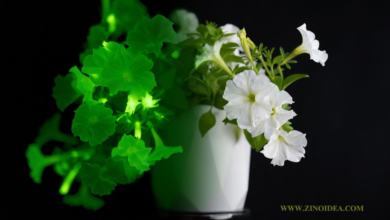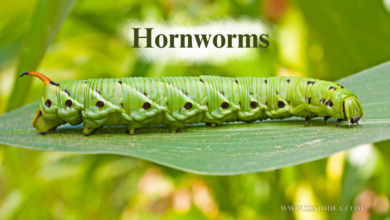Nematodes for Slugs: Effective Pest Control Solution

Ever thought about a natural way to fight off garden slugs? Consider Nematodes for Slugs, tiny but powerful worms that can help control slugs.
These tiny creatures can wipe out slugs without hurting your plants, pets, or the planet. Sounds good? Keep reading to learn how nematodes can make your garden beautiful and healthy.

Key Takeaways
- Nematodes are a natural, effective, and eco-friendly solution for controlling slugs in the garden.
- These microscopic worms are safe for children, pets, and wildlife, making them a great alternative to chemical pesticides.
- Nematodes target and kill slugs without harming your plants or the surrounding ecosystem.
- Learn how to properly apply nematodes to your garden for optimal slug control.
- Discover the best times and techniques to ensure nematodes effectively eliminate slug populations.
Nematodes for Slug Control
Using nematodes is an effective and environmentally friendly method to combat slugs in your garden. Beneficial nematodes, which are tiny worms, specifically target and eliminate these pests. They do this in just 3 days, making them a quick and safe choice compared to chemicals.
These worms live in the soil and are safe for your plants, kids, pets, and wildlife. They’re a natural way to keep your garden slug-free.
Nematodes are naturally found in many gardens but can be increased to fight slugs. By adding a special type of nematode, your garden can defend itself better against slugs. These beneficial nematodes find and infect slugs, stopping them from eating and breeding.
“Nematodes are a game-changer for anyone struggling with slugs. They provide an effective, eco-friendly solution that’s safe for the entire family and the environment.”
Using nematodes for slugs means you don’t need harsh chemicals to keep your garden healthy. Next, we’ll look into how these worms work and how they can protect your plants from slugs.
What are Nematodes?
Nematodes are small, roundworms that live in the soil. They are important in many ecosystems. Phasmarhabditis hermaphrodita is a type of nematode that eats slugs, making it a great natural pest control.
Beneficial Nematodes and Their Role
Phasmarhabditis nematodes are nematodes that attack slugs, a common garden pest. They move into the slug’s body and release bacteria. This stops the slug from eating and eventually kills it. After the slug dies, the nematodes multiply inside it, creating more predators.
- Beneficial nematodes hunt and infect slugs, offering a natural way to control pests.
- Phasmarhabditis nematodes are known for their effectiveness in fighting slugs.
- These nematodes release bacteria that prevent the slug from eating, causing its death and allowing the nematodes to reproduce.
Gardeners can use beneficial nematodes to protect their plants from slugs. This is a safe alternative to chemical pesticides.

“Beneficial nematodes are a game-changer for sustainable slug control in the garden.”
Advantages of Using Nematodes for Slugs
Nematodes are a great way to control slugs in your garden. These tiny worms are very good at killing slugs. They are also safe and good for the environment.
Safe for Children, Pets, and Wildlife
Safe nematodes are great for controlling slugs. They only go after slugs and don’t harm kids, pets, or wildlife. This makes them a smart choice for anyone who cares about their family and the environment.
Environmentally Friendly Pest Control
Environmentally friendly nematodes are a natural way to fight slugs. They’re already in the soil and don’t leave behind harmful chemicals. This means they’re safe for the planet and good for organic gardens.
Nematodes work well even when it’s wet, making them a dependable choice for slug control.

“Nematodes are a game-changer for gardeners looking to protect their plants from slug damage in a safe and responsible manner.”
How Nematodes for Slugs Work
Nematodes are tiny, worm-like creatures that are great for controlling slugs in gardens and crops. They are designed to target and kill slugs, making them a key tool against these pests.
The way nematodes control slugs is quite interesting. They find and infect slugs, entering through openings or by piercing the outer shell. Inside, they release bacteria that stop the slug from eating and lead to its death.
After killing the slug, nematodes reproduce inside it. This means they keep producing more predators to fight off more slugs. This cycle keeps going, protecting your plants for a long time.
| How Nematodes Kill Slugs | Nematode Slug Control Mechanism |
|---|---|
| Nematodes actively seek out and infect slugs Enter the slug’s body through natural openings or by penetrating the cuticle Release bacteria that stop the slug from feeding Slug dies quickly, and nematodes reproduce inside the dead slug New generation of nematodes continues the cycle | Nematodes enter the slug’s body Release bacteria that stop the slug from feeding Slug dies, nematodes reproduce inside New generation of nematodes continues the cycle |
Nematodes are a powerful tool for gardeners fighting slugs. They offer a natural and sustainable way to protect plants and keep gardens healthy.

nematodes for slugs
Applying nematodes for slugs is easy and can be done in your garden. These tiny helpers can be spread out in different ways. This ensures they cover all areas and protect against slugs.
Nematode Application Techniques
One way is to use a watering can with a coarse rose attachment. This spreads the nematodes evenly over your garden. Or, you can use a hose-end feeder for an easier process.
It’s important to put the nematodes on moist soil. They need moisture to work well and find and infect slugs. Keeping the soil wet helps the nematodes do their job better.
After applying, the nematodes move through the soil to find and infect slugs. This targeted action gets rid of pests without hurting good bugs or the environment.

Nematodes are easy to use and work well against slugs. Adding this natural pest control to your garden makes it thrive. You’ll have a garden free of slugs with little work.
Best Time to Apply Nematodes
Timing is key when using nematodes to fight slugs. Apply nematodes when the soil temperature is at least 40°F (5°C). This is when slugs start to feed and are most vulnerable.
Nematodes can handle a bit of frost, so don’t worry if it gets cold after you apply them. But, make sure the soil is moist. They need moisture to move through the soil and find slugs.
Soil Temperature Requirements
Nematodes do best in warm soil. Their success depends on the soil temperature. Here are some important points about soil temperature for nematodes:
- Optimal soil temperature: 40°F (5°C) and above
- Nematodes can survive occasional frost, but they need moist soil to move and find slugs
- Applying nematodes in cold soil (below 40°F/5°C) reduces their effectiveness and slows their movement
- Checking soil temperature helps you know the best time for nematode application
| Soil Temperature | Nematode Activity |
|---|---|
| Below 40°F (5°C) | Nematodes are less active and less effective at controlling slugs |
| 40°F (5°C) and above | Nematodes are most active and can effectively seek out and infect slugs |

Apply nematodes when the soil is at its best temperature for the best results. This will help control your slug problem and protect your garden.
Nematode Application Techniques
Applying nematodes to your garden for slug control is easy. Use a watering can with a coarse rose or a hose-end feeder. Remember, nematodes love moist soil, so apply them when the ground is damp.
To get the best results, spread nematodes around your plants. This way, slugs are more likely to meet the nematodes as they search for food.
| Nematode Application Methods | Advantages |
|---|---|
| Watering Can with Coarse Rose | Allows for targeted application around plants |
| Hose-End Feeder | Covers larger areas more efficiently |
Using these nematode application methods, you can effectively target slugs in your garden. Apply the nematodes when the soil is moist for the best effect in applying nematodes for slugs.
“Nematodes are a powerful, natural way to control slugs in the garden without the use of harsh chemicals.”
Controlling Slug Populations with Nematodes
Gardeners looking for a green way to fight slugs can use nematodes. These tiny worms help control slug numbers and protect your plants. By adding nematodes in early autumn, you can stop slugs from laying eggs and reduce new slugs in spring.
Nematodes find and infect slugs, then release bacteria that kill them in a week. This keeps slug numbers low, helping your garden stay healthy and full of life.
Reducing Egg-Laying and Spring Emergence
Using nematodes in early autumn is key to controlling slugs. It stops adult slugs from laying eggs, breaking the cycle and fewer new slugs will come in spring.
Nematodes are great at finding and killing adult slugs during this time. This stops the next generation from starting, reducing slugs in your garden.
Adding nematodes to your pest control plan helps you fight slugs effectively. With these beneficial worms, you can have a beautiful garden all season. Say hello to a slug-free garden with nematodes.
Nematodes for Specific Crops
Nematodes are tiny roundworms that help protect certain crops from slugs. They are especially good for potatoes.
Protecting Potatoes from Slugs
Nematodes for potatoes are great for keeping slugs away. Apply them 6 to 7 weeks before you plan to harvest potatoes. This is when the potatoes are most at risk.
Using nematodes for slug control in crops at this time can cut down the slug population. This means less damage to your potatoes. You’ll get a bigger, better harvest.
“Nematodes have proven to be a highly effective and eco-friendly solution for protecting potatoes from slugs, allowing growers to maximize their crop yields and quality.”
Nematodes are versatile and effective against pests, especially for potatoes. By using them, farmers can protect their crops without harmful chemicals.
Compatibility with Other Pest Control Methods
Nematodes are a great choice for fighting slugs in your garden. They are tiny worms that target and kill slugs. You can use them with other natural pest control methods for a full pest management plan.
Adding nematodes with other pest control works well with barriers like copper or diatomaceous earth. This creates a strong defense against slugs. Nematodes and these barriers together stop slugs from reaching your plants.
Using nematodes with other slug control methods, like picking slugs by hand or using beer traps, boosts your control efforts. Nematodes attack slugs at the early stage. Other methods target adult slugs. This makes your slug control plan strong and complete.
- Nematodes work well with physical barriers like copper or diatomaceous earth
- Combining nematodes with cultural practices like hand-picking or beer traps creates a comprehensive IPM strategy
- Nematodes target slugs at the larval stage, while other methods address adult slugs
“Integrating nematodes with other organic pest control methods is a smart way to achieve effective and sustainable slug management in your garden.”
By using nematodes in your pest control plan, you can have a garden without slugs. It will be safe for your family and the environment.
Cn :
Nématodes are a great way to keep slùgs away from your garden without harming the environment. These tiny worms find and kill slugs, stopping them from eating your plants. They are safe for kids, pets, and wildlife, and you can put them right into the soil.
Using nematodes as part of your pest control plan helps keep slug numbers down all season. They are a green way to protect your garden. With their strong action and easy use, nématodes are a top choice for fighting slùgs.
To sum up, nematodes are a full solution for slug problems. They are effective, safe, and good for the planet. By using these helpful worms, gardeners can have healthy plants and say goodbye to slug damage.
FAQ
What are nématodes and how do they control slùgs?
Nématodes are tiny worms that help control slùgs naturally. They are beneficial nématodes, like Phasmarhabditis hermaphrodita, that find and infect slugs. Once inside, they release bacteria that stops the slug from eating and eventually kills it.
What are the advantages of using nematodes for slug control?
Nematodes are a great choice over traditional chemical methods. They are safe for kids, pets, and wildlife, targeting only slugs. Being eco-friendly, they naturally live in soil and don’t leave harmful residues behind.
How do nématodes work to control slùgs?
Nématodes for slug control actively find and infect slùgs. They enter through natural openings or by piercing the slug’s skin. Inside, they release bacteria that prevents the slug from eating and quickly kills it.
How do you apply nematodes for slug control?
Applying nematodes is simple, using a watering can with a coarse rose or a hose-end feeder. Make sure the soil is moist, as nématodes need it to move and find slùgs effectively.
When is the best time to apply nematodes for slug control?
Apply nematodes when the soil temperature is at least 40°F (5°C). This is when slugs start to feed. Nematodes can handle a bit of frost, so don’t worry about a drop in temperature after applying.
Can nematodes be used in conjunction with other pest control methods?
Yes, nematodes work well with other pest control methods, like barriers or cultural practices. They are a safe and effective part of an integrated pest management (IPM) plan.



